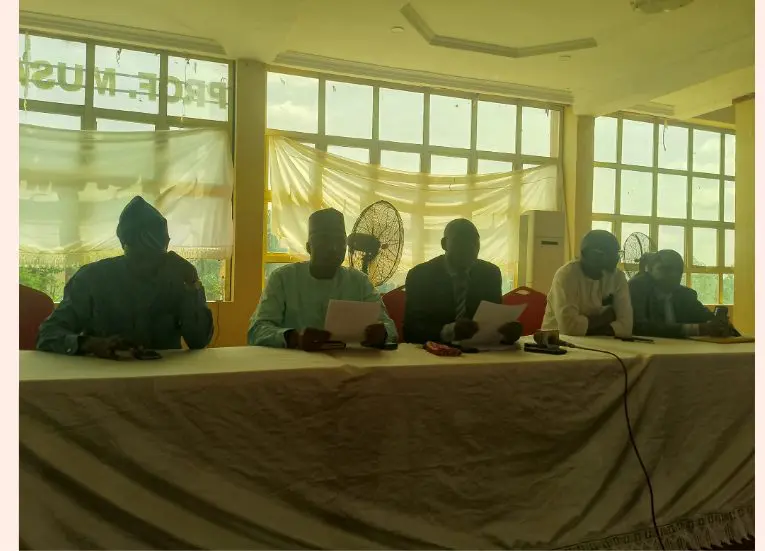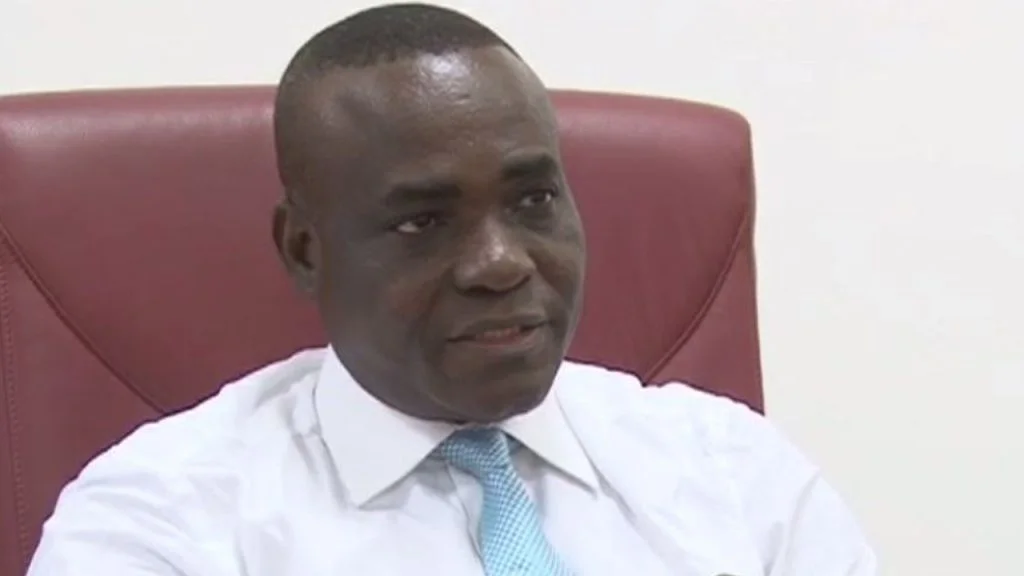News
Yoruba history beyond Oduduwa, Ile-Ife – Oluwo of Iwo

The Oluwo of Iwoland, Oba Abdulrasheed Adewale Akanbi, strongly emphasizes that the Yoruba ancestral homeland extends beyond Ile-Ife and urges historians involved in studying the Yoruba ancestral roots to maintain objectivity in their research and documentation.
In a statement released by his media spokesperson, Alli Ibraheem, in Osogbo on Monday, Oba Akanbi believes that confining research solely to Ile-Ife imposes limitations on the extensive historical achievements and greatness of the Yoruba people.
While asserting that the Yoruba people are closely associated with distinction, excellence, and greatness, the monarch claims that the first human ever created was Yoruba.
He explains that Oduduwa migrated to Ile-Ife and established the traditional governance system with the crown as the symbol of authority.
Oba Akanbi challenges Yoruba scholars to delve deeper into the origins and authenticity of Oduduwa as a descendant of Ola Mu Iru Dudu Yi, which is shortened to Lamurudu.
“Yorubas are inherently destined for greatness. Human history began with us. We are the descendants of Lamurudu, the first immensely powerful individual to construct the tallest building. Our history goes beyond Oduduwa and Ile-Ife. Restricting our history to these two aspects is akin to limiting our ancestors’ remarkable accomplishments and achievements of the past.
“I encourage Yoruba professors to objectively trace the lineage and origins of Oduduwa. He came from somewhere before settling in Ile-Ife, implying that Yorubas are not originally from Ile-Ife.
“In chronicling the history of the Yoruba people, it is imperative to include all ancient crowns and stakeholders with a genuine interest. We are conquerors, distinguished, and affluent. Consequently, we must establish our origins as even more illustrious and prosperous than our predecessors,” he asserts.
Furthermore, he adds, “I am a descendant of Oduduwa. Empirically, the origins of humanity can be traced back to the Yoruba people. The first man created, Adamo, was Yoruba. I have conducted extensive research in books and beyond on the concept of Adamo, extending my inquiries into Yoruba religion, which involves direct access to Olodumare without intermediaries. This approach is akin to other faiths such as Judaism, Christianity, Buddhism, Hinduism, and more. It serves to comprehend the meaning of Adamo. My findings are corroborated by numerous revelations. In the Yoruba dictionary, Adamo signifies ‘created from the red earth,’ which translates to ‘Eni ti a da ninu amo.’ I welcome further academic investigation of this concept by Yoruba professors.”
News
Nigeria s 1999 Constitution full of flaws – Muslim lawyers association

The Muslim Lawyers Association of Nigeria, MULAN, has declared that there are many defects and flaws in the current 1999 Constitution of the Federal Republic of Nigeria.
MULAN National President, Dr Kazeem Olajide Olaniyan, made this declaration while addressing a press conference to herald the 15th annual general conference of the association on Thursday in Ibadan, the Oyo State capital.
Olaniyan stressed that Nigeria needs a homegrown Constitution that will address the current challenges facing the country.

According to him, the 1999 Constitution was drafted during the military rule and has many defects and flaws.
He noted that a homegrown will address the current problems the country is facing.
Olaniyan while speaking further, maintained that the theme of the conference, ‘National Development: The new dynamics and nuances’, was chosen so as to provide solutions to the country’s problems.
He also used the medium to appeal to the government to address the issue of fuel scarcity, food crisis and inflation in the country.
“Any Constitution Nigeria must have must be homegrown. What we have now was drafted by the military.
“There are so many defects and flaws in the 1999 constitution.
“Removal of subsidy of petroleum has effect on all of us coupled with inflation. We are now experiencing fuel scarcity.
“As we speak, if we are blaming the government, there are so many things we as people are also causing. We are also calling on the government to address the problem of food insecurity.”
News
Court adjourns trial in Nigerian Govt versus Ali Bello, others to May 27

Senator Ita Enang, former Special Adviser to the President on National Assembly Matters, attributed the failure of the Nigerian economy, the escalating debt burden, and the depreciation of the national currency, the naira, to the National Assembly. Enang made these remarks during the public unveiling of Oversight Magazine, a publication dedicated to covering parliamentary events, by former House of Representatives member Aniekan Umannah.
Enang asserted that the National Assembly’s inability to pose pertinent inquiries was accountable for the economic challenges. Having chaired both the House and Senate Committees on Rules and Business, Enang criticized the chambers for never releasing reports on their oversight duties as required, nor for questioning the nation’s debt.
He highlighted that while lawmakers frequently conduct oversight visits to scrutinize the activities of Ministries, Departments, and Agencies, they neglect to present their findings for deliberation on the parliamentary floor. According to him, the executive’s suboptimal performance, at both state and national levels, can be attributed to the deficient oversight of the National Assembly and state Houses of Assembly nationwide.
Enang emphasized the importance of the oversight function, stating that it allows for monitoring the utilization of budget allocations, assessing project progress, and planning future budgets accordingly. He concluded that the failure of the Nigerian economy, the devaluation of the naira, and the excessive debt accumulation are ultimately the responsibility of the National Assembly.
News
NASS responsible for failure of Nigeria’s economy, rising debt – Ita Enang

Senator Ita Enang, former Special Adviser to the President on National Assembly Matters, attributed the failure of the Nigerian economy, the escalating debt burden, and the depreciation of the national currency, the naira, to the National Assembly. Enang made these remarks during the public unveiling of Oversight Magazine, a publication dedicated to covering parliamentary events, by former House of Representatives member Aniekan Umannah.
Enang asserted that the National Assembly’s inability to pose pertinent inquiries was accountable for the economic challenges. Having chaired both the House and Senate Committees on Rules and Business, Enang criticized the chambers for never releasing reports on their oversight duties as required, nor for questioning the nation’s debt.
He highlighted that while lawmakers frequently conduct oversight visits to scrutinize the activities of Ministries, Departments, and Agencies, they neglect to present their findings for deliberation on the parliamentary floor. According to him, the executive’s suboptimal performance, at both state and national levels, can be attributed to the deficient oversight of the National Assembly and state Houses of Assembly nationwide.
Enang emphasized the importance of the oversight function, stating that it allows for monitoring the utilization of budget allocations, assessing project progress, and planning future budgets accordingly. He concluded that the failure of the Nigerian economy, the devaluation of the naira, and the excessive debt accumulation are ultimately the responsibility of the National Assembly.
-

 World News7 months ago
World News7 months agoWhat we know about Israel’s war with Hamas
-

 Sports7 months ago
Sports7 months agoLaLiga: Everyone want to play with him – Vinicius on player Real Madrid should sign
-

 World News7 months ago
World News7 months agoIran calls on Islamic, Arab countries to confront Israel
-

 Tech7 months ago
Tech7 months agoTop 10 AI Skills to Learn in 2023
-

 Entertainment7 months ago
Entertainment7 months agoBET Hip-Hop Awards: Black Sherif wins big as Burna Boy loses seven nominations
-

 Entertainment7 months ago
Entertainment7 months ago‘Black Panther’ star Lupita Nyong’o breaks up with boyfriend, Selema Masekela
-

 ICT8 months ago
ICT8 months agoApple Bows To EU, Unveils iPhone With USB-C Charger
-

 World News7 months ago
World News7 months agoZelensky seeks defences for winter on visit to NATO


